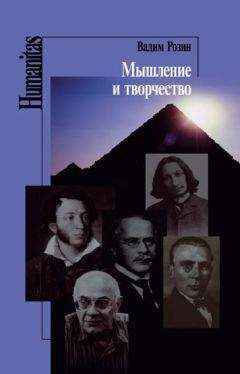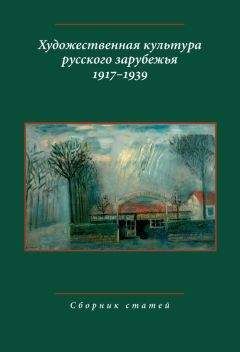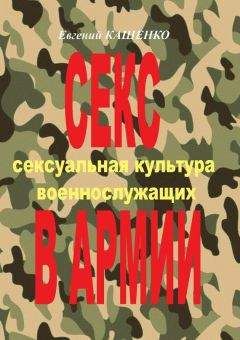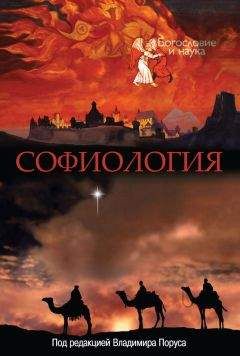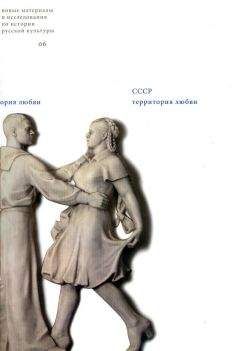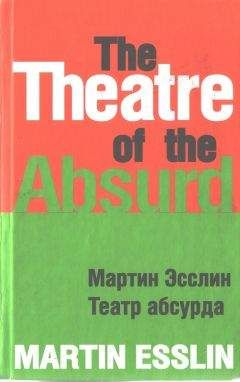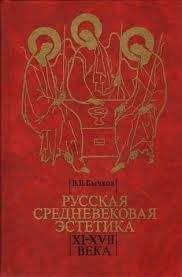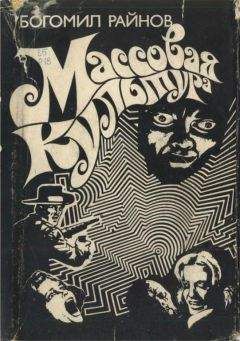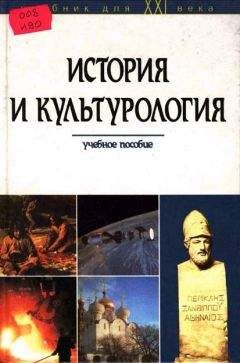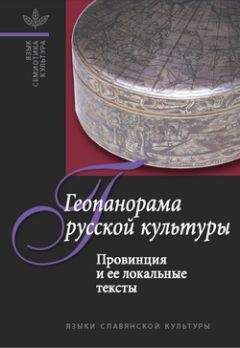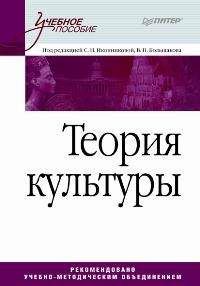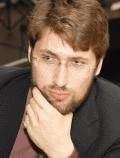Ольга Буренина - Абсурд и вокруг: сборник статей

Скачивание начинается... Если скачивание не началось автоматически, пожалуйста нажмите на эту ссылку.
Жалоба
Напишите нам, и мы в срочном порядке примем меры.
Описание книги "Абсурд и вокруг: сборник статей"
Описание и краткое содержание "Абсурд и вокруг: сборник статей" читать бесплатно онлайн.
Содержание сборника отражает программу международной конференции «Абсурд и славянская культура XX в», которая состоялась в октябре 2001 г в Цюрихском университете, объединив представителей самых разных научных дисциплин. Одна из главных задач сборника — на фоне современного теоретического дискурса об абсурде описать феномен абсурда (мировоззренческий, логический, художественный) в культуре XX в., показать его междискурсивный и межкультурный характер. В связи с этим выбранное нами название «Абсурд и вокруг» — в некоторой степени и полемическая отсылка к коллективному труду «Around the Absurd: Essays on Modem and Postmodern Drama», авторы и составители которого ограничивали понимание абсурда лишь сферой театрального искусства.
Сборник рассчитан на специалистов по литературоведению, философии, искусствоведению и теории культуры, а также на более широкий круг читателей, интересующихся вопросами абсурда в культуре.
Итак, тоталитаризм и аннулировал социальную стереотипичность, и был поглощен поисками различных средств, ко-10 — 4005 торые давали ему возможность все же быть неким обществом. Сюда следует отнести и конструирование элитных групп (в том числе Союза советских писателей), членам которых предписывалось консолидироваться на уровне как литературного быта, так и творчества, и выстраивание фасада общества, сложенного из мнимодемократических элементов, и взятие назад слишком далеко заходящих экспериментов (вроде «военного коммунизма» или спешной коллективизации деревни), и временные приостановки неразборчивого гостеррора.
Тоталитаризм абсурден как революция, навязывающая себя в норму повседневной жизни. Как негативный синтез социальной воспроизводимости, вечного возвращения (человека общественного) и историчности, находящей в революциях свое высшее воплощение.
ЛитератураГройс 1995 — Б. Гройс. Полуторный стиль: Соцреалистический стиль между модернизмом и постмодернизмом // Новое литературное обозрение. 1995. № 15. С. 44–53.
Кларк 2000 — К. Кларк. Сталинский миф о «великой семье» // Соцреалистический канон / Под. ред. X. Гюнтера, Е. Добренко. СПб., 2000. С. 785–796.
Рыклин 2002 — М. Рыклин. Пространство ликования: Тоталитаризм и различие. М., 2002.
Смирнов 1999 — И. П. Смирнов. Homo homini philosophus. СПб., 1999.
Arendt 1955 — Н. Arendt. Urspränge totaler Herrschaft. Frankfurt am Main, 1955 (=The Origins of Totalitarianism, 1951).
Boym 1994 — S. Boym. Common Places: Mythologies of Everyday Life in Russia. Cambridge, Mass.; London, 1994.
Bürger 1974 — P. Bürger. Theorie der Avantgarde. Frankfurt am Main, 1974.
Danto 1936 —A. C. Danto. The Philosophical Disenfranshisement of Art. N. Y., 1986.
Giddens 1979 — A. Giddens. Central Problems in Social Theory: Action, Structure and Contradiction in Social Analysis. London; Basingstoke, 1979.
Giesz 1979 — L. Giesz. Phànomenologie des Kitsches // J. Schulte-Sasse (Hrsg.). Literarischer Kitsch: Texte zu seiner Theorie, Geschichte und Einzelinterpretation. Tübingen, 1979.
Groys 1987 — B. Groys. The Problem of Soviet Ideological Practice // Studies in Soviet Thought. 1987. № 33.
Hansen-Löve 1978—/4. A. Hansen-Löve. Der russische Formalismus. Wien, 1978.
Hansen-Löve 1995 —À. A. Hansen-Löve. Kunst/ Profession: Russische Beispiele zwischen Avantgarde und Konzeptualismus // B. Steiner (Hrsg.). Lost Paradise: Positionen der 90-er Jahre. München; Stuttgart, 1995.
Jones 1998 — S. G. Jones. Information, Internet and Community // S. G-Jones (ed.). Cybersociety. 2.0. Revisiting Computer-Mediated Communication and Community. Thousand Oaks e. a., 1998. P. 1— 34.
Popoff 1925 — G. Popoff. Tscheka. Der Staat im Staate. Erlebnisse und Erfahrungen mit der russischen Auszerordentlichen (sic!) Komission. Frankfurt am Main, 1925.
Vladimir Davchev (Skopje)
Technological civilization — civilization of existential absurdity
We can say, that even in the middle of an apparently meaningful, at least ordered universe, human life seems absurd, meaningless, out of joint, useless. The bird-nest may not seem absurd for the bird, but from the human point of view, from the perspective of the only rational creature, who is not satisfied merely to live out the life of their species, the creature who asks more questions than there answers, life is absurd and ridiculous. Of course, the ultimate absurdity of human existence is not obvious, but sometimes when we just walk down the street, we suddenly notice the deep absurdity of the events around us. Such a flash of awareness may move us to laughter, even though the feeling is more tragic than comic. Being laughed at for what we and other human creatures are so busy doing — and talking so seriously — indicates that we have transcended the situation. Evidently it takes a special perspective or sensitivity to see the absurdity underlying the «obvious» organization and purposefulness of human life.
Describing the conditions of existential absurdity depends on metaphors drawn from our experience of ordinary absurdity: any clash, out-of-placeness, or incongruity. For example, finding sleepers in the refrigerator or an umbrella in a bath makes us laugh because these things are out of their «proper» places. When familiar thing are juxtaposed in unexpected ways, the absurd is created, which often strikes us as funny. Actually, a particular situation in real life can be considered as an absurd situation when it possesses discrepancy between our desires and reality. Hence, when we find ourselves in an absurd situation, we usually try to change it by changing our own desires. This, in fact, is an attempt to match reality with our own desires, or to distance ourselves from that particular situation. Naturally, since it is not always possible to distance ourselves from the absurd situation, nor to distance the absurd situation from us, we usually try to imagine a certain change that could prevent absurdity. For example, in the realms of logic, aesthetics, or ethics harmony, it is easy to point out elements that upset proper balance and «fit». Asking for the love life of the moon and earth is logically absurd. Interrupting Beethoven's 9th Symphony for a commercial is esthetical absurd. When a notorious murderer or a criminal becomes the president of a big philanthropic foundation, we consider this act to be ethically absurd. In each of these examples of obvious incompatibility, we immediately know how to correct the clash or disharmony. Ordinary contradictions have obvious causes and solutions.
But the deeper sense of total absurdity does not arise from a specific clash we can analyse. It is more than this. It is free-floating, all-engulfing sense of disharmony, a non-intelligible problem of something out of its place, indeed it is a feeling that human existence itself seems to be «out of place». When we ask for the ultimate meaning of the accidental universe, the only answer is — silence. We cannot imagine what modification would create fundamental harmony. This absurdity is not the intellectual perception of clash or disharmony but the existential collapse of our whole sense of order. Seen from within the absurd, nothing has a proper place.
One of the 20th century's most popular non-realistic genre is absurd. The root «absurd» connotes something that does not follow the roots of logic. Existence is fragmented, pointless. There is no truth, so the search for truth is abandoned in Absurdist works. Language is reduced to a bantering game where words obfuscate rather elucidate the truth. Action moves outside of the realm of causality to chaos. Absurdists minimize the sense of place. Characters are forced to move in an incomprehensible, void-like realm. Danish philosopher Srnren Kierkegaard was the first to use the term «absurd» in its modern context. His application of the term related it to what he considered the incomprehensibility and unjustifiably of Christianity. Existentialist philosophers such as the Frenchman, Jean-Paul Sartre and the German, Martin Heidegger propagated the use of the terms in their work. In the philosophical world of the novel, Albert Camus employed absurdism to portray the difference between man's intent and the resultant chaos he encounters.
In modern civilization man is posited as the subject of knowledge in science and technology, animating the utopian projects of industrial civilization, and culminating in great urban conglomerates, as in the sealed universe of commodities which constitutes the omnipresent mall. Technique, defined as the ensemble of means, is the driving force of social development, more important than the ends it is supposed to serve. Unfortunately, technique became an end in itself and the society is organized around it. Of course, we are all aware that we need certain changes to subdue technique, but I think it is too late now to change the course of technique. However, technique is frequently pictured as the only hope for a better future and the only means of making the world more humane. And that is the sort of statement that French philosopher Jacques Ellul calls the technological bluff. Technology is a discourse on techniques: therefore, the bluff lies not in the failure of techniques as such but in presenting them in a falsely optimistic light. The author formulated in 1954 two laws of technical progress: first, it is irreversible: second, it advances by a geometric progression. Thus, a computer revolution changes nothing in the nature of technical progress, although products are new. This progress is hampered not by internal mechanisms, but by the maladaptation of the social body to it, since society is rooted in the past and constantly refers to it. On the other hand, technique is future- oriented and discards as valueless everything that cannot be incorporated into the web of techniques.
The extraordinary influence of technology on the world has always been a paradox to me. That scientific and technocrats minds could produce unparalleled effects on the course of human activities during the last fifty years, still seems absurd to most people today. Technical progress gives rise to a new aristocracy, technocrats, who combine authority with competence. Their knowledge is indispensable for the proper functioning of the society.
However, if they talk about democracy, ecology, culture, etc., they are «touchingly simplistic and annoyingly ignorant». For instance, when stating that everyone will have access to data banks, only other technicians are meant, not poor farmers or the young unemployed. Technocrats are also the main source of the technological bluff, since when picturing tomorrow's society they often disregard such problems as pollution, growth of armaments, or stagnation of some countries, especially those from the Third World. In their eyes, to halt building nuclear power stations is the same as returning to the caves. Technical progress is good by its very nature and thinking otherwise is a mark of obscurantism.
One of the features of the technical world is uncertainty. Technical progress does not know where it is going. This is why it is unpredictable. It always has both positive and negative effects, and they are inseparable; technical progress also creates more problems than solutions. On that point Ellul says: «using techniques always pays off in the short term and then brings disaster»[277]. The last factor contributing to an increase of uncertainty of the future of techniques are internal contradictions of the technical system and society. For instance, a vulnerability to accidents grows proportionally with the size of organizations. Similarly, the more powerful a technique is, the more it disturbs the world. Some people think that the techno-discourse is a discourse about humanity and the ways of advancing it; of course, by the means of techniques. Some humanists, on the other hand, think that the technique can be saturated with traditional values. Today's culture only has an operational value detached from tradition, molded by the technical progress and economic needs. A human being enslaved to work in the position of the technical individual is not alienated by the mere fact of that position, but by the structures of power and meaning that operate contemporaneously with it.
When the power of industrial capitalism societies locked human beings in such positions, the psychic and existential economies involved were open to other futurities than just the technological; for example, the political. That such futurities no longer exist- or no longer bear the same meaning- does not mean that they were not real; indeed the direction of cultural and social progress through new dispensation of the technological, in spite of its nobility in ascribing integrity to past manifestations, and in desiring the unification of the social, cultural and technological fields in a different order of possibility, relies upon a model of past blindness and present insight which is in itself historically circumscribed. With one word, bad culture chases out good culture. Despite many statements, man has lost control over technical development.
If technique is the event of creation whose paradigms in history have been lost (paradigms of values and belief, as well as more specifically material paradigms of existence whose effects are unknown since they are particular of individual experience), technology is the ideology of power divorced from ethical, precisely because it excludes negativity, specially the negativity of its own blindness. Yet it always requires an ethical adjunct: particularly we can reject the fear of the omnipotent robot by arguing that machines are always going to be in the service of man. But this assurance comes not from within technology, since it requires a consciousness of the negative even if we only reject it as unreal.
Technology always defines itself as insightful, in the claims to give access to creativity. But we should not forget that technology is industrialized power. Let's take for example information technology. Information technology seeks mediation as a supreme value, thereby occluding the problem of the economic hegemony exercised in the world by those economies that control technology. By claiming a mediating role, by situating the idea of finality within outmoded metaphysics, technology projects negativity into the non-technological. I would like to make a digression to this point — Nuclear power is a symbol of our civilization. However, as Gunther Anders points out, «it is not a symbol of our civilization just because it is an innovation in physics (although that is true), but also because the its possible effect or probable effect has metaphysical nature, which is not true about any previously man-made effect. I call the effect of nuclear energy metaphysical, because the adjective „periodical“ presupposes an ongoing development of history and continuation of future periods. We, the ordinary people, cannot rely on this presupposition, because as Anders noted, „The period of change of periods ended after 1945“[278].
The conflict between industrialisation and what is known as basic needs of technology in economic planning for the Third World highlights the role of technological finitude, which the ideology of power can never admit. It is not sufficient to argue that technology creates its own values within an ever-expanding horizon of development; that resembles the spurious argument that the market economy is free of ethical values. In the current global economy, all the values of technology are created under the sign of power. Conversely, what was only ever of virtual significance and applicable to technology as well: namely, that all values of technique are created under the sign of mortality. Technology, in its use and in the meaning derived from that use, is now the material form of immortality, of a reality which is becoming more and more virtual as it distances itself from the irreducible negativity of the human experience.
Подписывайтесь на наши страницы в социальных сетях.
Будьте в курсе последних книжных новинок, комментируйте, обсуждайте. Мы ждём Вас!
Похожие книги на "Абсурд и вокруг: сборник статей"
Книги похожие на "Абсурд и вокруг: сборник статей" читать онлайн или скачать бесплатно полные версии.
Мы рекомендуем Вам зарегистрироваться либо войти на сайт под своим именем.
Отзывы о "Ольга Буренина - Абсурд и вокруг: сборник статей"
Отзывы читателей о книге "Абсурд и вокруг: сборник статей", комментарии и мнения людей о произведении.





